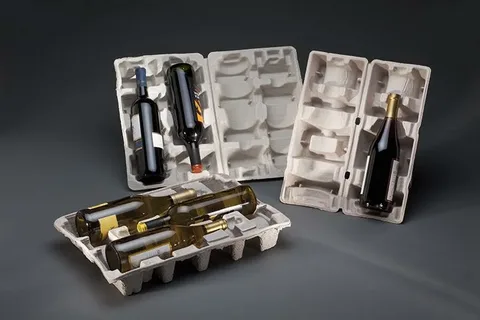
How Thermoformed Molded Fiber Products Reduce Environmental Impact
Thermoformed molded fiber products are an innovative solution in sustainable packaging and product manufacturing. These products are made from renewable materials such as recycled paper, cardboard, and agricultural waste, offering an eco-friendly alternative to plastic and Styrofoam. The thermoforming process involves molding fiber pulp into various shapes using heat and pressure, ensuring durability while maintaining a minimal environmental footprint.
As businesses and consumers seek environmentally responsible solutions, thermoformed molded fiber products have gained significant traction. Their ability to replace single-use plastics and reduce waste makes them an essential component of sustainable development. By integrating these products into different industries, companies can contribute to a healthier planet while maintaining product efficiency and functionality.
Reduction of Plastic Waste and Pollution
One of the most significant benefits of thermoformed molded fiber products is their ability to reduce plastic waste. Traditional plastic packaging contributes to severe environmental problems, including ocean pollution and landfill overflow. Unlike plastic, molded fiber products decompose naturally, eliminating long-term waste accumulation and reducing the environmental burden.
Additionally, the manufacturing process for these products produces fewer greenhouse gas emissions compared to plastic production. Since thermoformed molded fiber products are biodegradable and compostable, they do not contribute to microplastic pollution, which poses a severe threat to marine life and ecosystems. By choosing molded fiber alternatives, businesses and consumers can play an active role in reducing global plastic pollution.
Sustainable Sourcing and Production Process
Thermoformed molded fiber products are derived from recycled and renewable materials, making them a sustainable choice from the sourcing stage. Unlike petroleum-based plastics, which rely on finite fossil fuel resources, molded fiber products utilize post-consumer and post-industrial paper waste. This reduces dependence on virgin materials and supports a circular economy by repurposing waste into valuable products.
Furthermore, the production process of thermoformed molded fiber products is more environmentally friendly than plastic manufacturing. Water and energy consumption are significantly lower, and many manufacturers implement closed-loop water recycling systems to minimize waste. By adopting these sustainable practices, molded fiber product manufacturers can drastically reduce their ecological footprint while offering high-quality, functional packaging solutions.
Compostability and Biodegradability
One of the most compelling advantages of thermoformed molded fiber products is their ability to decompose naturally. Unlike plastic, which can take hundreds of years to break down, molded fiber products typically degrade within a few months under composting conditions. This characteristic makes them an excellent choice for environmentally conscious businesses and consumers looking to minimize their impact on the planet.
The compostability of these products also supports soil health by providing organic matter when broken down. Many molded fiber items meet international compostability standards, meaning they can be safely disposed of in composting facilities without leaving toxic residues. This feature further enhances their appeal as an alternative to traditional single-use packaging materials that contribute to long-term waste issues.
Versatility and Applications Across Industries
Thermoformed molded fiber products have a wide range of applications across various industries, making them a viable alternative to plastic packaging. They are commonly used in food service, electronics packaging, healthcare, and consumer goods industries due to their durability, lightweight nature, and cost-effectiveness. Their ability to be customized into different shapes and sizes enhances their versatility, allowing businesses to adopt sustainable practices without compromising functionality.
In the food service industry, molded fiber trays, plates, and containers provide a biodegradable solution for takeout and catering services. Similarly, the electronics sector benefits from molded fiber packaging as a protective and eco-friendly alternative to foam-based cushioning. By replacing traditional materials with thermoformed molded fiber products, companies can significantly reduce their carbon footprint and demonstrate their commitment to environmental sustainability.
Conclusion: A Step Towards a Greener Future
The widespread adoption of thermoformed molded fiber products is a crucial step toward reducing environmental impact. Their biodegradable nature, sustainable sourcing, and reduced reliance on plastic make them a superior alternative for businesses looking to adopt eco-friendly packaging solutions. By prioritizing these products, industries can contribute to a cleaner planet and set a precedent for responsible environmental stewardship.
As consumer awareness of sustainability grows, the demand for environmentally friendly alternatives will continue to rise. Thermoformed molded fiber products offer a practical and effective solution for reducing waste and promoting sustainable manufacturing practices. By embracing these innovations, businesses and individuals can work together to create a healthier, more sustainable world for future generations.
Leave Your Comment